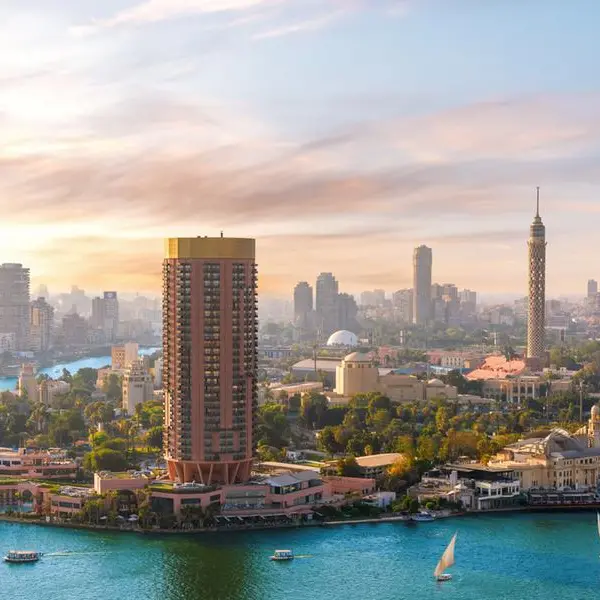PHOTO
Family-owned businesses in the Middle East are in danger of losing trillions of dollars of wealth and assets due to lack of legacy or succession planning, notes LPH Financial Services.
Leena Parwani, Founder and Chief Executive Officer of LPH Financial Services, says: “A large chunk of the wealth might disappear into thin air, right after the death of the founder of the business as the second and the third-generation representatives of these family-owned businesses might not possess the same entrepreneurial zeal. Many of them spend the wealth lavishly in luxury, sometimes wild lifestyle.
“It is therefore very important for the Founders, Chairman and the leaders of the family-owned businesses to start doing legacy planning to protect their hard-earned wealth.”
Legacy planning
Legacy planning is crucial to consider before a person passes away. After a person dies, the family’s wealth and possessions are passed on to the chosen successor or next of kin or to people or charities specified in a will.
If a business owner doesn't have a plan in place for his estate, its management might go against your wishes once it is passed on. Legacy planning is important for all family-owned businesses – small or big. For a small business or farm, or any other assets that require ongoing maintenance, legacy planning is often an important financial tool.
The report further stated there was growth of 5.5% in millionaires in the Middle East while their wealth increased by 6.3% mainly due to technology and recovery in oil prices. The incomes of the richest people grew from 7.8% to 8% due to growth in the stock market.
Generational transition
Although most UAE family businesses that started off in the 1960s-1980s have passed over to the next generation successfully, many of them might not succeed to the third-generation transition, LPF says.
Legacy planning is a financial strategy that prepares people to bequeath their assets to a loved one or next of kin after death, according to Investopia. These affairs are usually planned and organised by a financial advisor.
According to Capgemini Research Institute’s World Wealth Report 2021, the population of high-net-worth individuals (HNWIs) – or the number of people owning more than $1 million – in the Middle East region grew by 6.8% to 800,000, while their wealth soared by 10.7% to $3.2 trillion in 2020. The wealth of these rich people – mostly belonging to businessmen – are in danger due to lack of legacy planning.
Lack of corporate structure
Due to lack of proper corporate structure and corporate governance, most family-owned businesses are failing to maintain the same level of growth under the next generation as before. Many family business founders have passed away without leaving a clear succession plan, a will or legacy planning, resulting in legal disputes among the successors on their perceived share in the family wealth.
The Covid-19 pandemic has created an urge among most family-owned businesses to undertake some kind of legacy planning or succession planning to protect the family wealth from being plundered.
“We’ve seen more clients take an interest not only in Wills, but also in mental capacity planning by way of an Enduring Power of Attorney (EPA) or Lasting Power of Attorney (LPA). A third type of planning, known as “lifetime planning”, has also gained popularity,” says a report by HSBC.
“Whereas a Will only takes effect after an individual’s death, and an EPA/LPA only while they are mentally incapacitated, other types of plans can be set in motion during their lifetime. Clients are increasingly considering trusts, partnerships, and family investment companies as a way of relinquishing value, control and/or influence to the next generation during their own lifetime, or as a way of introducing the next generation to the family’s wealth as a means of continuity.”
Economic climate
For some, the current economic climate has created an opportune time for wealth transfer, with lower asset valuations and lower effective transfer tax rates resulting directly from the pandemic.
Some clients are not yet ready to surrender control to trustees. As an alternative structure, a family limited partnership (FLP) or a family investment company (FIC) may be considered, HSBC report says.
“FLPs and FICs can still help to coordinate and protect assets, but allow senior family members to retain greater control of assets while transferring wealth in a more gradual manner to the younger generation. An FIC is a private company whose shareholders and directors are members of the family. Shares are usually divided into different classes with varying levels of control. For example: parents own shares with voting rights, while children and grandchildren hold shares with economic or dividend rights but no voting rights.”
Largest number of millionaires
Saudi Arabia has the largest number of millionaires in the Middle East with more 224,000 millionaires living in the kingdom. According to the World Wealth Report 2022 issued by the Capgemini Research Institute for Financial Services, Saudi Arabia is ranked 17th globally in the number of millionaires. There has been a 6.7% increase in millionaires in Saudi Arabia in 2021 when compared to 2020 - from 210,000 to 224,000.
The kingdom was followed Kuwait, which witnessed an increase of 6.1% in the number of millionaires from 205,000 to 217,000. Kuwait is 18th globally after Saudi Arabia.
The UAE is home to 92,600 US-dollar millionaires; 4,000 multi-millionaires worth more than $10 million; 251 centi-millionaires (over $100 million), and 14 US-dollar billionaires, according to the latest Henley Global Citizens Report.
Copyright 2022 Al Hilal Publishing and Marketing Group Provided by SyndiGate Media Inc. (Syndigate.info).





















